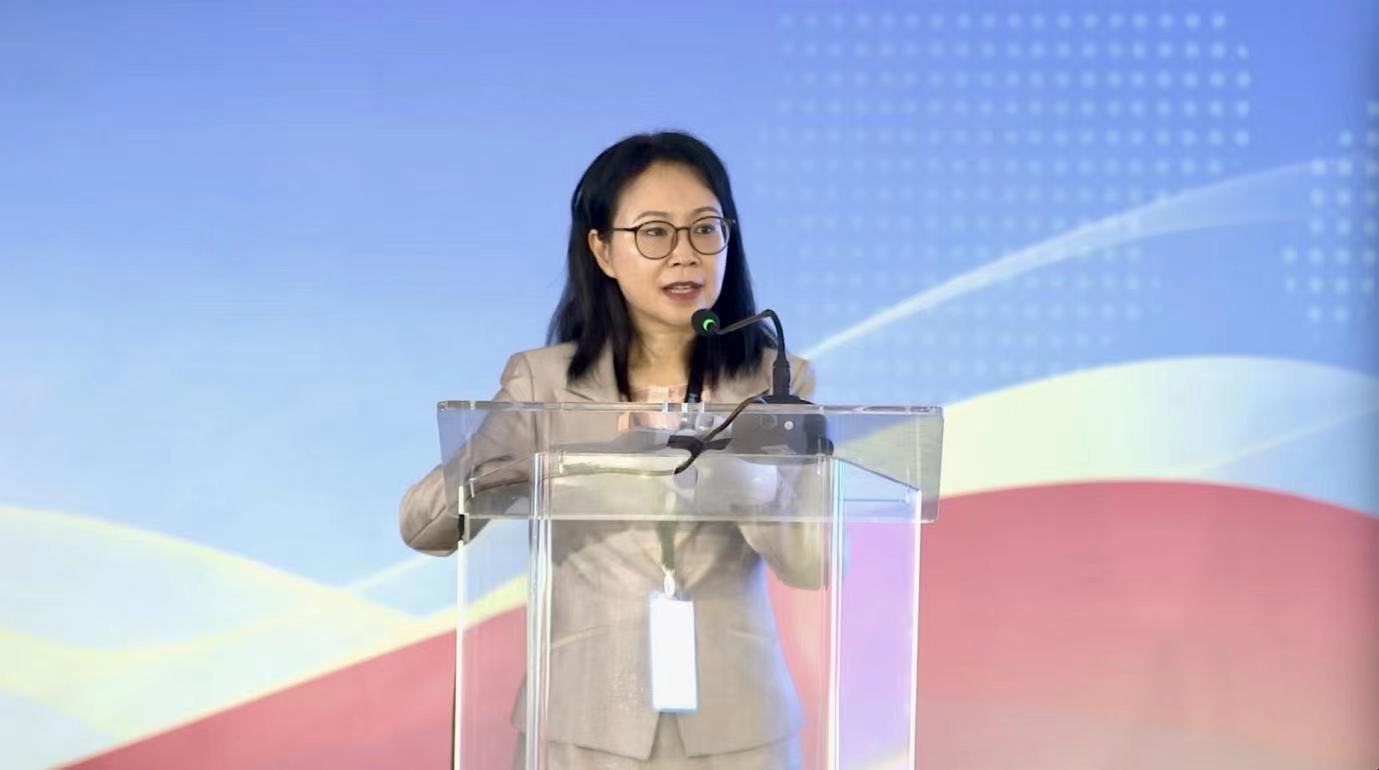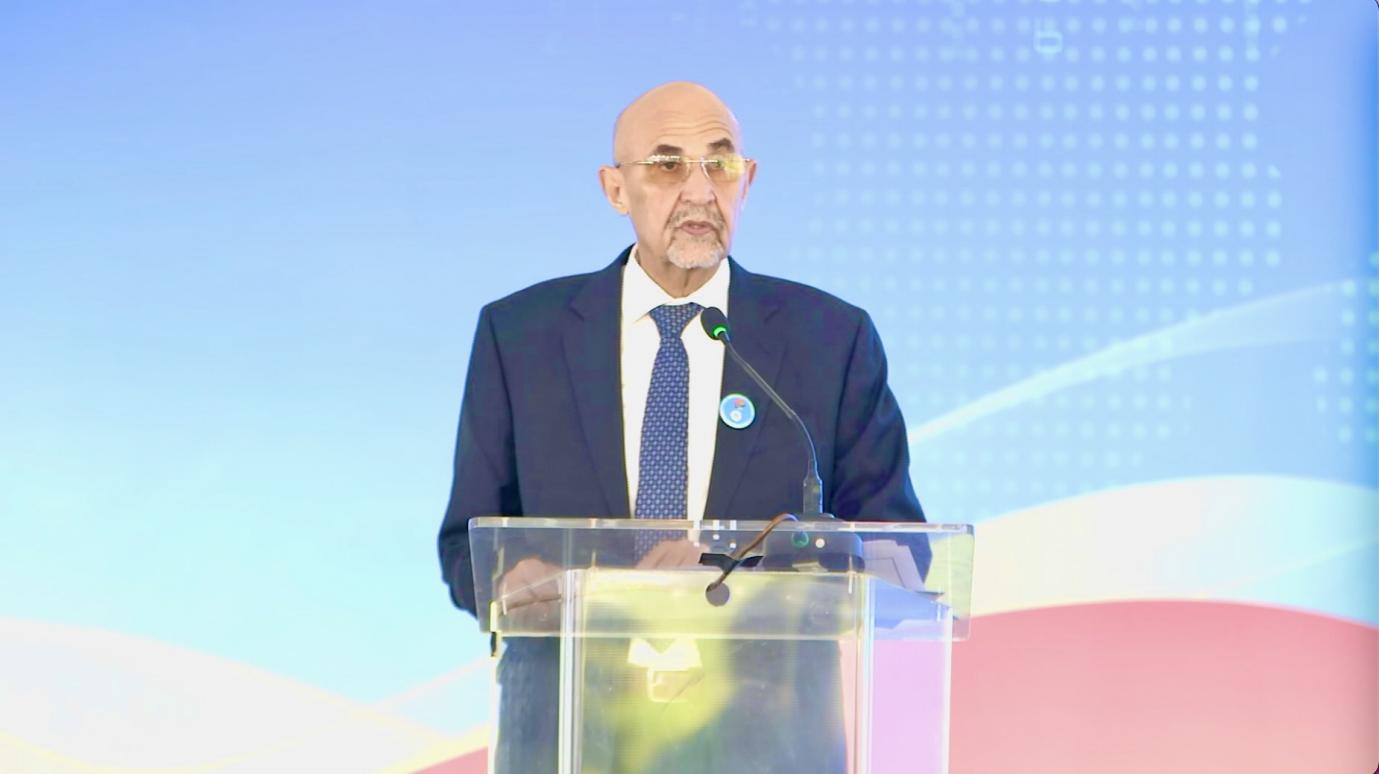Uniting shared aspirations across two vibrant regions and commemorating the 10th anniversary of the Belt and Road Initiative (BRI), a special event China-Africa Vision: Towards a Sustainable Future took place at the University of Dar es Salaam. Co-organized by CGTN and the Chinese embassy in Tanzania, the event marked a significant step towards reinforcing the ties between China and Africa, with an emphasis on sustainable growth and shared prosperity.
The historic trajectory of China-Africa relations, marked by sincerity and reciprocity, provided the backdrop for this special occasion. Bringing together diplomats, entrepreneurs, academics, policymakers and around two hundred participants from China and Africa, the event aimed to explore avenues for fostering a sustainable partnership and enacting positive change for the future.
How has the China-Africa partnership transformed over the last decade, particularly in the context of China and Tanzania? This question finds its answer in the remarkable progress that the Belt and Road Initiative has fostered in building a new bridge of friendship.

A picture of Chen Mingjian, Chinese ambassador to Tanzania. /CGTN
A picture of Chen Mingjian, Chinese ambassador to Tanzania. /CGTN
Chen Mingjian, China's ambassador to Tanzania, pointed out in her welcoming speech that under the BRI framework, the bilateral trade volume between China and Tanzania surged to $ 8.31 billion in 2022, achieving a remarkable 3.5-fold growth over the decade. Such collaboration extends beyond economics, encompassing education, culture and more. The partnership has not only spurred industrialization through key ventures, but also forged deeper cultural ties, as exemplified by projects like the University of Dar es Salaam's library.
"If you want to go fast, go alone, and if you want to go far, go together." This African proverb was cited by Mussa Zungu, deputy speaker of Tanzania's parliament, to underscore the depth of this collaborative journey. He believes platforms such as Forum on China-Africa Cooperation (FOCAC) and BRI are facilitating the development of African countries, especially in addressing the infrastructure gap. The BRI's infrastructure connectivity aligns with the East African Community's development strategy, making it a catalyst for economic integration.

A picture of Mussa Zungu, Deputy speaker of Tanzania's parliament. /CGTN
A picture of Mussa Zungu, Deputy speaker of Tanzania's parliament. /CGTN
Over the past decade, China and African countries have achieved significant advances in high-quality cooperation under the Belt and Road framework. Chinese Vice Foreign Minister Deng Li says the scope of collaboration between China and Africa has consistently expanded, resulting in cumulative trade volume exceeding $2 trillion. China is Africa's largest trading partner, with a direct investment flow of more than $30 billion. It has sent 9,000 medical personnel to various African nations and facilitated more than 100,000 training opportunities.
Infrastructure stands as a cornerstone in China-Africa relations, echoing the connectivity ethos of the Belt and Road Initiative. Ronald Deuly, communications manager at CCECC East Africa Limited agreed that Chinese companies have played a pivotal role in advancing infrastructure projects such as roads, railways, bridges and airports in Africa. These initiatives have brought tangible improvements to local communities, enhancing livelihoods and exemplifying win-win cooperation.
Beyond economic collaboration, China and Africa have also fostered cultural exchanges and nurturing people-to-people bonds. Arriving in Tanzania two decades ago, Janson Huang from Group Six International, Sinotan Industrial Park, has only witnessed the country's transformation and contributed to its growth. Through his endeavors in the construction and real estate industries, Huang has constructed buildings and played a pivotal role in shaping communities and industries, paralleling the rapid growth of Tanzania over the past few years.
At the forefront of the thriving collaboration between China and Africa in agricultural technology stands Ernest Mkongo, the coordinator of the China Agricultural University - Morogoro Regional Secretariat Soybean Project. In 2011, Mkongo's path converged with the expertise of China Agricultural University (CAU), igniting a transformative partnership. This alliance ignited the adoption of advanced farming techniques, with CAU's guidance propelling maize cultivation. By 2018, Mkongo's leadership spurred regional soybean production through dynamic collaboration with CAU experts.
From agricultural advancements to transformative infrastructure projects, the collaboration between China and Africa is diverse and dynamic. As the two regions celebrate a decade of partnership through the Belt and Road Initiative, it becomes evident that sustainability rests on even broader and more inclusive exchanges. To ensure a resilient future, driving innovation, embracing new endeavors and amplifying collaboration across diverse sectors are paramount.